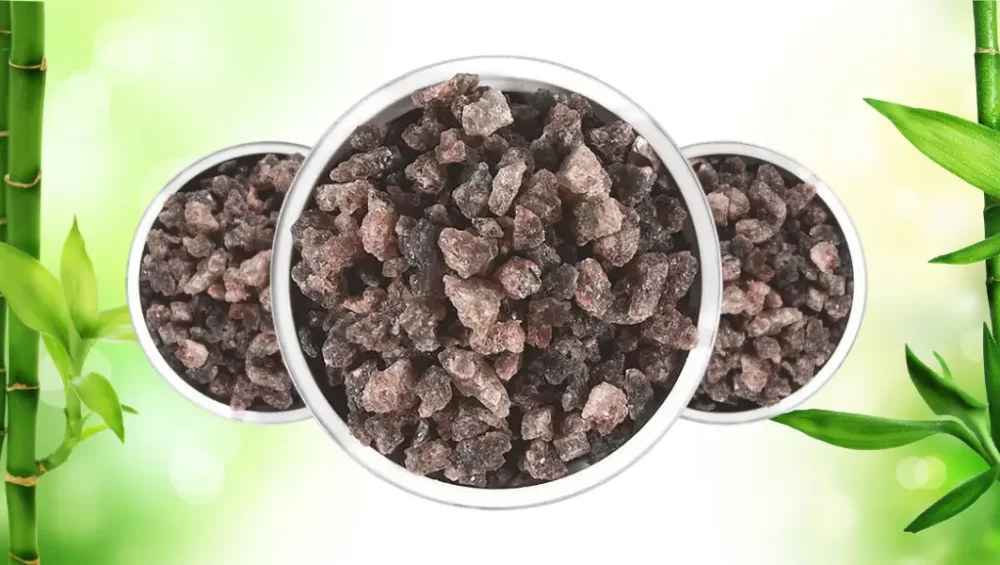Health Benefits of Bamboo Salt: Myth or Medicine?
Bamboo salt, an ancient Korean remedy, has recently garnered attention for its purported health benefits. Traditionally prepared by roasting sea salt in bamboo at high temperatures, this unique salt undergoes a process that infuses it with minerals and alters its chemical structure. But the big question is: Are the health benefits of bamboo salt a well-substantiated truth or just another health myth? Let’s dive into the scientific research and anecdotal evidence to explore the reality behind bamboo salt’s health claims.
The Origin and Preparation of Bamboo Salt
Bamboo salt, known as “Jukyeom” in Korean, dates back over a thousand years. The preparation process involves packing sea salt into bamboo tubes, sealing the ends with mineral-rich clay, and roasting it at temperatures exceeding 800°C (1472°F). This process is repeated multiple times, typically nine, enhancing the salt’s mineral content and purported health benefits.
Claimed Health Benefits
Proponents of bamboo salt suggest a variety of health benefits, including:

Detoxification:
Bamboo salt is said to help cleanse the body of toxins due to its alkaline properties and high mineral content.

Anti-inflammatory Properties:
Some believe it can reduce inflammation and support overall immune health.

Digestive Health:
It is often claimed to improve digestion and help with gastrointestinal issues.

Skin Health:
Bamboo salt is used in topical applications to treat skin conditions like eczema and acne.

Dental Health:
Advocates suggest that it can help prevent tooth decay and gum disease due to its antibacterial properties.
Scientific Evidence: What Does Research Say?
While these claims are widespread, scientific research on bamboo salt is relatively limited. However, some studies offer promising insights:
Mineral Content and Alkalinity:
Research indicates that the repeated roasting process increases the mineral content of bamboo salt, including magnesium, potassium, and calcium, which are beneficial for overall health. Its alkaline nature can help balance the body's pH levels, potentially aiding in detoxification and reducing acidity-related issues.
Antioxidant Properties:
A study published in the journal Food Chemistry found that bamboo salt exhibits significant antioxidant activity, which can help combat oxidative stress and inflammation in the body.
Anti-inflammatory Effects:
A study in the Journal of Ethnopharmacology demonstrated that bamboo salt has anti-inflammatory properties, which may support its use in reducing inflammation and enhancing immune function.
Digestive Health:
While direct evidence on bamboo salt's impact on digestion is sparse, its alkaline properties could theoretically help neutralize stomach acid and improve digestive health.
Skin and Dental Health:
Anecdotal evidence and some small-scale studies suggest that bamboo salt can be beneficial for skin and dental health, although more rigorous research is needed to confirm these effects.
Beyond scientific research, countless personal testimonials praise bamboo salt for its health benefits. Many individuals report improvements in conditions like acid reflux, skin problems, and oral health after incorporating bamboo salt into their routines. These stories, while compelling, should be approached with caution as anecdotal evidence lacks the rigor of scientific studies.
Myth or Medicine?
The health benefits of bamboo salt appear to be a mix of both myth and medicine. While scientific research supports some claims, particularly regarding its mineral content, antioxidant properties, and potential anti-inflammatory effects, many benefits remain anecdotal and require further investigation.
For those interested in exploring bamboo salt, it is essential to do so with a critical eye and consult with healthcare professionals, especially when considering it for medical purposes. As with any health product, moderation and informed decision-making are key.







